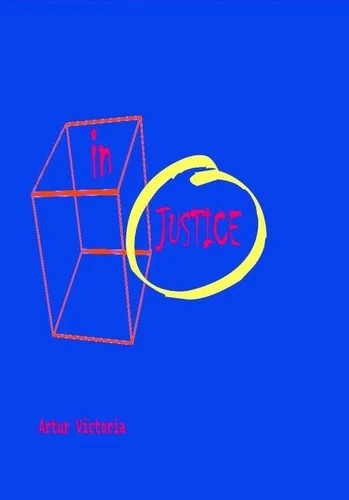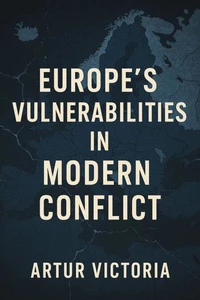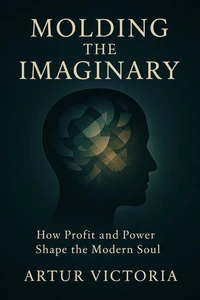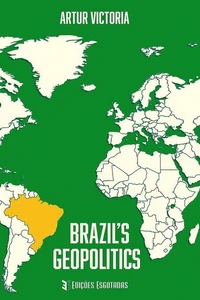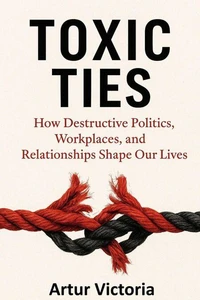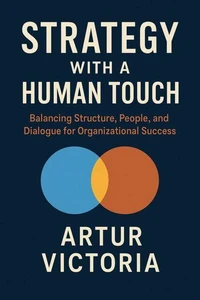In/Justice. Ethics and Policies, #3
Par :Formats :
Disponible dans votre compte client Decitre ou Furet du Nord dès validation de votre commande. Le format ePub protégé est :
- Compatible avec une lecture sur My Vivlio (smartphone, tablette, ordinateur)
- Compatible avec une lecture sur liseuses Vivlio
- Pour les liseuses autres que Vivlio, vous devez utiliser le logiciel Adobe Digital Edition. Non compatible avec la lecture sur les liseuses Kindle, Remarkable et Sony
- Non compatible avec un achat hors France métropolitaine
 , qui est-ce ?
, qui est-ce ?Notre partenaire de plateforme de lecture numérique où vous retrouverez l'ensemble de vos ebooks gratuitement
Pour en savoir plus sur nos ebooks, consultez notre aide en ligne ici
- FormatePub
- ISBN8231994793
- EAN9798231994793
- Date de parution02/05/2025
- Protection num.Adobe DRM
- Infos supplémentairesepub
- ÉditeurWalzone Press
Résumé
The understanding of injustice is further shaped by cultural contexts. What constitutes fairness and equity varies significantly across different societies. Certain practices may be considered acceptable in one culture but unjust in another. Understanding these cultural nuances is vital for developing effective strategies to combat injustice in a globalized world. The concept of injustice encompasses a broad spectrum of experiences and actions.
It extends beyond isolated acts of cruelty or discrimination to include systemic, institutional, and interpersonal levels of oppression. Systemic injustice refers to the ways in which social structures, policies, and institutions create and perpetuate inequalities, often unintentionally. Institutional injustice involves the biased or discriminatory actions of specific institutions, such as the police, courts, or schools.
Interpersonal injustice occurs in relationships between individuals, such as acts of bullying, harassment, or domestic abuse. These levels are deeply interconnected, with individual acts often reflecting broader systemic and institutional patterns of oppression. Injustices are not only a characteristic of authoritarian regimes. Unfortunately in democracies injustices also exist. Our approach is very wide but reflects reality, with a case study as example.
It extends beyond isolated acts of cruelty or discrimination to include systemic, institutional, and interpersonal levels of oppression. Systemic injustice refers to the ways in which social structures, policies, and institutions create and perpetuate inequalities, often unintentionally. Institutional injustice involves the biased or discriminatory actions of specific institutions, such as the police, courts, or schools.
Interpersonal injustice occurs in relationships between individuals, such as acts of bullying, harassment, or domestic abuse. These levels are deeply interconnected, with individual acts often reflecting broader systemic and institutional patterns of oppression. Injustices are not only a characteristic of authoritarian regimes. Unfortunately in democracies injustices also exist. Our approach is very wide but reflects reality, with a case study as example.
The understanding of injustice is further shaped by cultural contexts. What constitutes fairness and equity varies significantly across different societies. Certain practices may be considered acceptable in one culture but unjust in another. Understanding these cultural nuances is vital for developing effective strategies to combat injustice in a globalized world. The concept of injustice encompasses a broad spectrum of experiences and actions.
It extends beyond isolated acts of cruelty or discrimination to include systemic, institutional, and interpersonal levels of oppression. Systemic injustice refers to the ways in which social structures, policies, and institutions create and perpetuate inequalities, often unintentionally. Institutional injustice involves the biased or discriminatory actions of specific institutions, such as the police, courts, or schools.
Interpersonal injustice occurs in relationships between individuals, such as acts of bullying, harassment, or domestic abuse. These levels are deeply interconnected, with individual acts often reflecting broader systemic and institutional patterns of oppression. Injustices are not only a characteristic of authoritarian regimes. Unfortunately in democracies injustices also exist. Our approach is very wide but reflects reality, with a case study as example.
It extends beyond isolated acts of cruelty or discrimination to include systemic, institutional, and interpersonal levels of oppression. Systemic injustice refers to the ways in which social structures, policies, and institutions create and perpetuate inequalities, often unintentionally. Institutional injustice involves the biased or discriminatory actions of specific institutions, such as the police, courts, or schools.
Interpersonal injustice occurs in relationships between individuals, such as acts of bullying, harassment, or domestic abuse. These levels are deeply interconnected, with individual acts often reflecting broader systemic and institutional patterns of oppression. Injustices are not only a characteristic of authoritarian regimes. Unfortunately in democracies injustices also exist. Our approach is very wide but reflects reality, with a case study as example.

